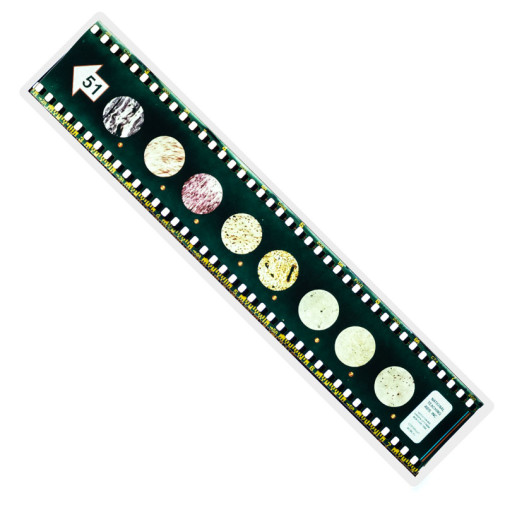We use cookies to make your experience better. To comply with the new e-Privacy directive, we need to ask for your consent to set the cookies. Learn more.
Microslide, Animal Tissues - B Set
Voluntary muscle cells, involuntary muscle cells, heart muscle, areolar connective tissue, bone, blood, adipose tissue, spinal cord.
Each Microslide® title includes a slide featuring 8 related 35mm images photographed through a microscope called photomicrographs. Arrows and call outs help the student locate important features. Each Microslide® is accompanied by a detailed lesson plan designed to stimulate, inform, and question students about the topic under study. Each lesson plan has a pocket in which the Microslide® is stored.
Review and compare microscopes sold at Rainbow Resource Center with our helpful Microscope Comparison Charts for: Grades K-8 and for Grades 6-12. Each microscope on the charts has an item number that links back to our website for a detailed description.
Microslides come in a folder-like card which features information about each slide and includes a holder for the slide itself. A helpful amount of information is normally included for each slide image, including the name of the image, the magnification of the image, background information and points of interest. It's especially helpful when points of interest are labeled with letters, which are repeated on the slide, to make it easy to locate them. It's like getting a guided tour! Although designed for the Microslide viewer, these slides can also be viewed on a standard microscope, with some adjustment. ~ Stephanie
| Product Format: | Other |
|---|---|
| Brand: | Supertek Scientific |
| Grades: | PK-12 |
| Length in Inches: | 8.25 |
| Width in Inches: | 6.5 |
| Height in Inches: | 0.0625 |
| Weight in Pounds: | 0.1 |

